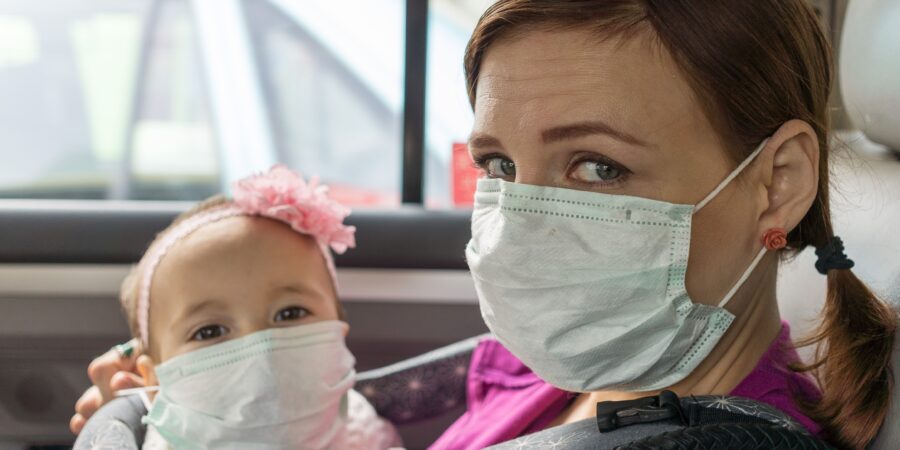{Radio} Welcome to the World Gen B’s
Between the height of the COVID pandemic 2020 to 2022, 755,265 children were born in Australia and 140 million globally and their birth in a unique time in human history has singled them out for a new demographic title – Gen B.
Gen B’s will begin Year 1 from 2025, finish VCE/HSC (or whatever final year may be then, and I pray it will be significantly different then, but that’s another blog post for another day) in 2037 enter the workforce (whatever that may be) in 2038, earn income for 80+ years and look forward to an average Australian lifespan of 105 years, contemplating their mortality in 2127 or thereabouts.
As they celebrate New Years eve, with their children and grandchildren, on Thursday 31st December 2099, they will wonder what’s ahead for the 22nd Century and reflect nostalgically on the good old days and how the world has changed since the 2020’s.
It is impossible to predict Gen B’s journey to that New Year’s Eve, but given what we know now, and many of the outliers of possibility we’re seeing on our near, midterm and long view horizons, here’s some of the changes Gen B might experience as they make their way on to the world stage over the next few decades.
The World: A More Connected, Digitally Savvy World
Generation B will grow up in a world that is more interconnected and digitally savvy than any previous generation. They will be comfortable using technology from an early age and will expect businesses and services to be accessible through digital, meta, and physical channels.
Life:
Greater Flexibility and Work-Life Balance
Non-linear, remote, and distributed work will become the norm for Generation B, and they will be comfortable working from anywhere. This means that businesses will need to adopt flexible working arrangements and provide the necessary infrastructure and tools to support remote working.
Education: More Personalised and Technology-Driven Learning
Generation B will have access to a wide range of personalised and technology-driven learning resources.
They will have a better understanding of how technology can enhance their learning and will expect educational institutions to leverage technology to create engaging and personalised learning experiences.
The emphasis will have moved to creation and wisdom as technology and AI do the heavy lifting of remembering, lifelong information storing and just-in-time information delivery.
Relationships: A More Diverse and Inclusive Society
Generation B will grow up in a world that is increasingly diverse and inclusive. They will be comfortable with different cultures, languages, and customs and will expect businesses and society to reflect this diversity.
They are likely to marry later (mid 30’s), have fewer children (2) and celebrate 70 years+ wedding anniversaries (or will long term marriage become an antiquated anecdote).
Relationships will also see changes as Generation B grows up. With more people moving towards remote work, relationships may become more long-distance, leading to a shift in the way people communicate and connect. Additionally, Generation B may prioritise individualism, leading to changes in traditional family structures.
Work: A Focus on Sustainability and Social Responsibility
Generation B will be more environmentally conscious than any previous generation.
They will be acutely aware of the impact that their actions have on the environment and will expect businesses to adopt more sustainable practices and products.
They will also be more socially conscious and will expect businesses to take responsibility for their social impact.
With remote work becoming more prevalent, flexible work arrangements are likely to become the norm. As companies shift to accommodate diverse off-site workforces, traditional office spaces may become obsolete, and the need for co-working spaces and other flexible arrangements will rise.
Gen B’s will have a variety of income producing task-based activities and for many the availability of a Universal Wage will underpin a flexible lifestyle, where work, as we know it today, is not possible.
Health: Increased Focus on Mental Health and Well-being
With advancements in technology and the need for remote consultations, telemedicine will become more widespread. This will make healthcare more accessible and convenient, especially in rural areas.
As Generation B grows up, they may prioritise wellness and preventative healthcare over curative healthcare, changing the way healthcare is provided.
Generation B will be more aware of mental health and well-being than any previous generation.
They will expect businesses to adopt policies and practices that prioritize employee well-being and provide support for mental health issues.
Many of today’s ravaging diseases will have been tamed, personalised medicine and the regrowth of body parts become ordinary and routine, but new diseases and health problems will have emerged, exacerbated by pushing at the boundaries of living longer and the impacts of environmental changes.
Housing: Smaller, More Sustainable Homes
Generation B will be more environmentally conscious than any previous generation. They will be more likely to prioritise sustainability when choosing housing,
As this demographic group enters the housing market, they will prioritize sustainability, eco-friendliness, smart homes that are smaller, more efficient and use fewer resources.
The need for spaces that promote wellness and mental health will also increase, leading to a shift towards green spaces and community living.
Gen B will also share a trait with their Silent Generation (1924 -1945) ancestors, they were both born in eras of uncertainty, scarcity and with legacy psychological scars, of a world less certain.
Despite the possible differences in societal, technological, and environmental impacts Gen B’s may face in their life, their business and societal needs are not that different from previous generations.
At its core, Gen B’s needs and wants are still human-centric.
Their world has still not been overrun or dominated by technology.
They still have a love / hate symbiotic relationship with technology, where it has been mostly harnessed and leveraged for good and where mostly, people are good.
If we are to leave a positive legacy for those that come next, it is essential that businesses continue to take a pragmatic human-first future strategy viewpoint that allows them to imagine audaciously, dream big, think forward, and that continues to focus on creating a more diverse and inclusive world and workplace, adopts sustainable practices, and creates, curates and leverages technology that best supports and uplifts all humans, including Generation B.
Listen in now as Hong Kong Radio 3’s Phil Whelan and I chat about Generation B in our regular weekly on-air catch up (recorded live 1st May 2023 17 minutes 47 seconds)
I’d love your thoughts in the comments below on how you see Gen B’s world evolving.
#GenerationB #COVIDbabies #FutureGenerations #DemographicShifts #Sustainability #FlexibleWorking #MentalHealthAwareness #PersonalizedLearning #DiversityandInclusion #SocialResponsibility #BusinessFuturist #FutureStrategyPlanning #ChangingDemographics


